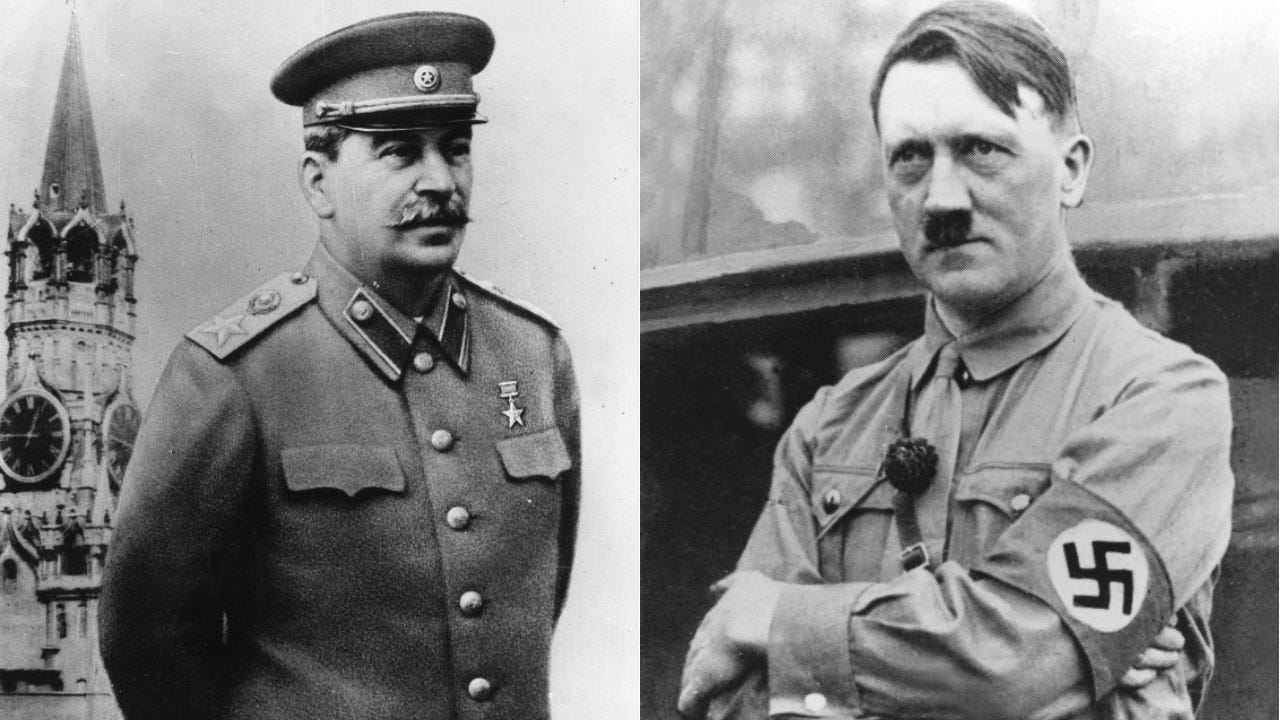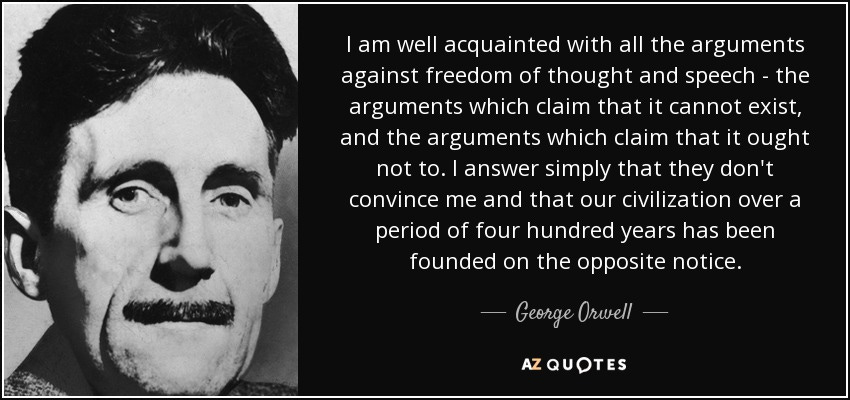Why Communism is Even Worse Than Fascism
I am aware that if you read my articles, you understand nuance and complexity but, sadly, not everyone does. In view of this, this paragraph is necessary for those who will inevitably attempt to misrepresent this piece in the future:
Nothing in this article is intended to serve as a defence of fascism. Arguing about whether fascism is better than communism is like fighting over your preferred flavour of gangrene.
I merely ask that those of you who abhor fascism as much as I do are also willing to be intellectually honest and recognise the fact that communism is, in fact, even worse.
I met a Bulgarian man in an Amsterdam cafe earlier this week. He recognised me and we talked about many things. He asked me if I had seen Chernobyl HBO mini-series and I said "no, I hate watching stuff everyone is banging on about".
He said, "I know what you mean but you must watch it because it perfectly captures the society we lived in where fear and cowardice triumphs over truth".
I watched Chernobyl the day I got home and he’s right. The series is so authentic it immediately hits you in the gut when you recognise it.
But he also told me a fascinating story about his country that I was not aware of:
The man who eventually became the first President of Bulgaria when the USSR collapsed, Zhelyu Zhelev, was a dissident during Soviet times who was expelled from the Communist Party and made unemployable for years. Eventually, in 1982 he wrote a book called Fascism in which he chronicled the fascist regimes in Spain, Italy and Germany before, during and after World War II.
Was this a ploy to curry favour with the Communist Party by criticising its enemies? Not exactly: the book was banned within weeks of publication because the similarities between the societies he described in the book and the one he lived in were far too striking to ignore.
The parallels between these two collectivist ideologies are, of course, exceedingly obvious. Spawned during the same time period as a response to the same problem and offering many of the same solutions, communists and fascists had stark differences, but on economics, in particular, Hitler’s National Socialists were not as different to other kinds of socialists as people would like to believe.
The reasons for this historical revisionism differ from country to country. In Russia, a law passed in 2014 criminalised any meaningful comparison between the crimes of the Soviet Union and the exact same crimes committed by Nazi Germany.
As a result, most people in Russia and, frankly, elsewhere, have no idea that when Hitler started World War II by invading Poland, he wasn’t alone. The Soviet Union invaded Poland at exactly the same time, capturing more territory than the Germans. This was the product of an explicit, albeit secret, agreement between Hitler and Stalin in which they divided Eastern Europe as they saw fit.
Ironically, in Russia, which experienced communism first hand, the comparison between communism and fascism is not banned in order to defend the ideology of communism, merely to protect the historical view of Russians as a good people who sacrificed millions of lives to stop Hitler.
In the West, on the other hand, communism apologists operate from a rather different set of needs.
First, despite what historian Roger Moorhouse calls the Devil’s Alliance between Nazi Germany and the USSR, Hitler soon stabbed his new friend in the back1 and by June 1941, having been invaded, the Soviets found themselves on the same side as Britain and France. Orwell’s magnificent preface to Animal Farm makes clear the corrosive effect this necessary alliance had on the West’s ability to criticise communism.
You may be familiar with the following Orwell quote:
What you likely aren’t familiar with is the sentence that followed it:
"For quite a decade past I have believed that the existing Russian régime is a mainly evil thing, and I claim the right to say so, in spite of the fact that we are allies with the USSR in a war which I want to see won.”
The argument for preventing this sort of sentiment from being aired was simple: we needed the Soviet Union to win the war and shutting up Stalin’s critics was a price worth paying. In other words, some whitewashing of communist crimes is a product of practical considerations. But not all.
There were, and, I can tell you from direct personal experience, still are many people in Western societies who are temperamentally inclined towards the allure of radical socialism. As they see the negative trade offs of capitalism, their instincts for compassion, empathy and care kick into overdrive. Combined with an idealism which blinds them to the sad truth of life that any society will always have unsolvable problems, they see only the flaws in their own and assume that the opposite must be better.
George Bernard Shaw, for example, loved Communism and worshipped Stalin. Walter Duranty of the New York Times won a Pulitzer prize for his fraudulent coverage of the Holodomor and wide-spread famine in the Soviet Union in which millions starved to death, including members of my family.
I won’t waste your time with more examples: we all know some on the Left cover for communism because they believe in it or want to believe it hasn’t been tried properly.
Nor will I give you the standard anti-communist talking points about the death toll from communist regimes which far exceeds those of any other ideology. I won’t remind you that Che Guevara, whose face is an ever-present symbol of “resistance” around the world, was in fact nothing more than a racist, homophobic mass murderer.
Above and beyond these very real atrocities, the true horror of the communist system was something that went beyond its material impact. As my newly-made Bulgarian friend told me:




